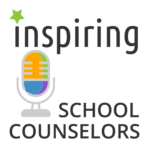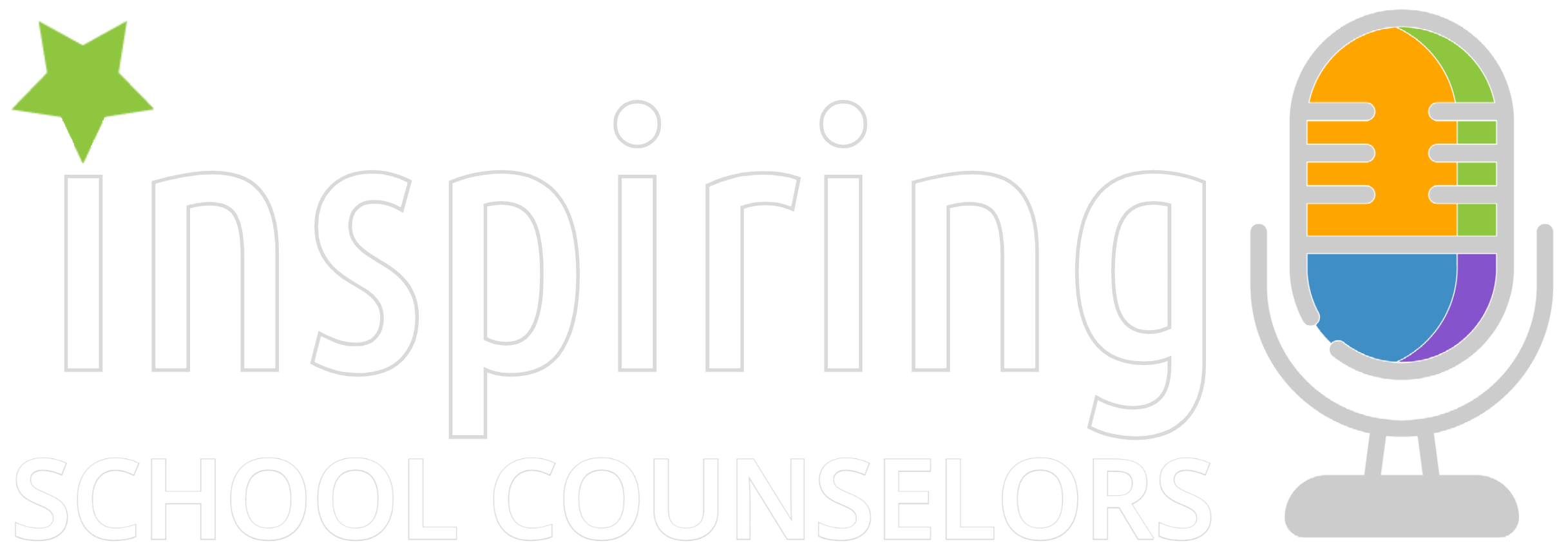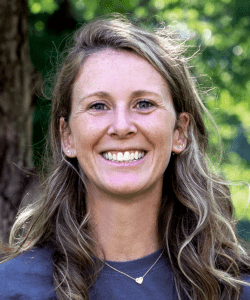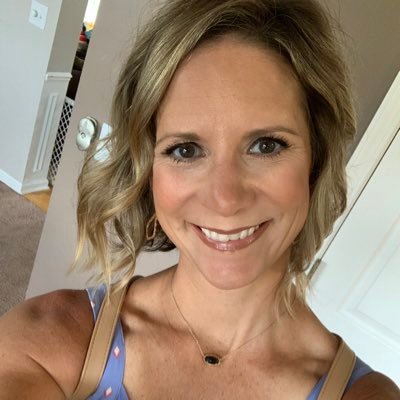
State School Counseling Specialists Sarah Bazemore (Virginia) and Michelle Clarke (Indiana) offer practical tips and helpful resources to keep counselors healthy and sane through the start of another school year.
As mentioned in the podcast, here’s a link to Sarah’s virtual welcome back packet.
Are you a school counselor with a tip or resource to share? Contact Inspire Success and let us know what’s working for you!
Transcript
Matt Fleck:
Hi, everyone. Welcome to another week of Encouraging Words for School Counselors. I’m Matt Fleck with Inspire Success. Hey, thanks to all of you who are spreading the word about this tiny podcast. We’ve picked up new listeners from several states over the last two weeks. So welcome everyone. Speaking of states, the school counseling specialist from the States of Virginia and Indiana join us today; both offering a few tips on how to stay healthy this fall as your workload quickly ramps up, plus a few school counseling resources that I think you’ll really love.
First, some tips from Indiana state school counseling specialist. Michelle Clarke says it’s important to remember this school year to set boundaries, not just ethical and emotional boundaries with our students, but very practical boundaries between your schoolwork and your home life.
Michelle Clarke:
What I’ve learned throughout my nine years of being a school counselor is that your job never feels like it’s done. There’s always things that you need to work on, improve. And at the end of the day, you know, some days you might get your to do list done. Some days, you know, crisis pops up and you just don’t even get to half the things on your list. And so I’ve just had to learn to be okay with that; okay with knowing that everything might not get done, but just finding a system and organization that works so that I know that I can still, you know, meet the needs of my students and the parents and my administrators, but also taking care of myself.
Matt:
In my first year as a school counselor — I remember this very clearly — it was a very busy fall day. I had one student in my office, two others waiting outside. I clearly remember my mentor, Carolyn, who was set to retire the next year, coming into my office, right in the middle of my conversation with a student, very politely apologizing to the student as she escorted her out of my office and closed the door. Then Carolyn came back in, sat down and said, now we’re going to take a moment to just relax. And for two or three minutes, we just sat there. I had my mouth open all the time, thinking, “What!” still surprised. Then Carolyn got up, looked at me and said, remember, it’s important to take a break, pointing her finger at me. And with that, she opened up the door again, escorted the student I was talking with back in, apologized to her, apologized to all the kids out in the hall, and went back to her very busy office as well. One simple gesture and it made a huge impact on me. Now, Michelle Clark says, you need to make some conscious decisions as you take some practical steps to keep those boundaries between work and home firmly divided.
Michelle:
The first thing was that I made my fitness and health a priority. So if that meant getting up early in the morning to get in exercise or shutting my computer at four o’clock and going, working out, outside at school, or sometimes I would even go in the hallway and do my online, you know, Beachbody programs, but whatever I could do to just squeeze it in. And when I first started, I used to feel guilty cause I have four kids and they’re, some of them will be at daycare. And so I’d feel like I needed to, you know, literally rush out the door, you know, and pick them up, but I wasn’t taking care of myself. So I just learned that I either need to do the exercise in the morning when they’re still sleeping or, you know, set aside that time where I’m just setting boundaries that, you know, I’m going to work until 3:45. And if I don’t get work done, I’m going to write it down on my to do list, and it’s going to be there for me first thing in the morning.
Matt:
Tip number two, according to Michelle, is to take care of our bodies. Practically, this means not only eating right, but also taking the time to eat, period.
Michelle:
I know too many educators and counselors that just sit there and skip their lunch. And I know I was guilty of it as well. Literally eating my lunch in front of kids, because it’s just the nature of your profession, right? But I think that, setting aside that time of day to eat your lunch is okay. Shut your door, tell kids that you’re eating your lunch, and put someone else in charge. But I think it’s important for you to have that time to recharge.
Matt:
Now, Virginia state school counseling specialist, Sarah Baysmore concurs with Michelle. One of her tips to counselors is to only worry about that which you can control and to let go of the uncontrollable.
Sarah Bazemore:
There is so much outside of our control right now. It can be extremely easy to get sucked into the problems. And the next thing you know, you are paralyzed by what you can’t do. This is a time for action. Avoid conversations that only admire the problem.
Matt:
Sarah says, it’s also critical to remember that social distancing with our students should not be relational distancing. That is we may need to work differently and more creatively in order to maintain the relationships with our students.
Sarah:
No significant learning can occur without significant relationships. Ask yourselves: Do my students know that I’m here for them? Do they know my name and how to reach me? How many times did I engage in a conversation with a student today? How can I find time to get in front of them — either virtually or in person — each week? How can I continue to connect and deepen relationships with students and their families?
Matt:
I love one of Sarah’s tips that says, “I will give myself the same grace that I give others.” And another that says, “I will make mistakes. And that is okay.”
We show appreciate the work that Sarah, Michelle, and all of the state school counseling specialists do to support school counselors and school counseling.
We’re going to put a link to Sarah’s virtual welcome back packet on our website, which has scores of resources organized specifically for elementary school counselors, another set for secondary school counselors, it includes a link to Brené Brown’s advice on doing emotionally intelligent Zoom meetings, and tons of tips from other school counselors on using various apps, such as Flipgrid, Nearpod, Loom, Schoolology, Google slides, WeVideo, and many more.
You can find a link to all of those resources at inspiresuccess.org/podcast — inspiresuccess.org/podcast — under episode number eight. And you can tell us what resources work best for you by sending an email to info@inspiresuccess.org.
Until next time, stay well and have a great week!


